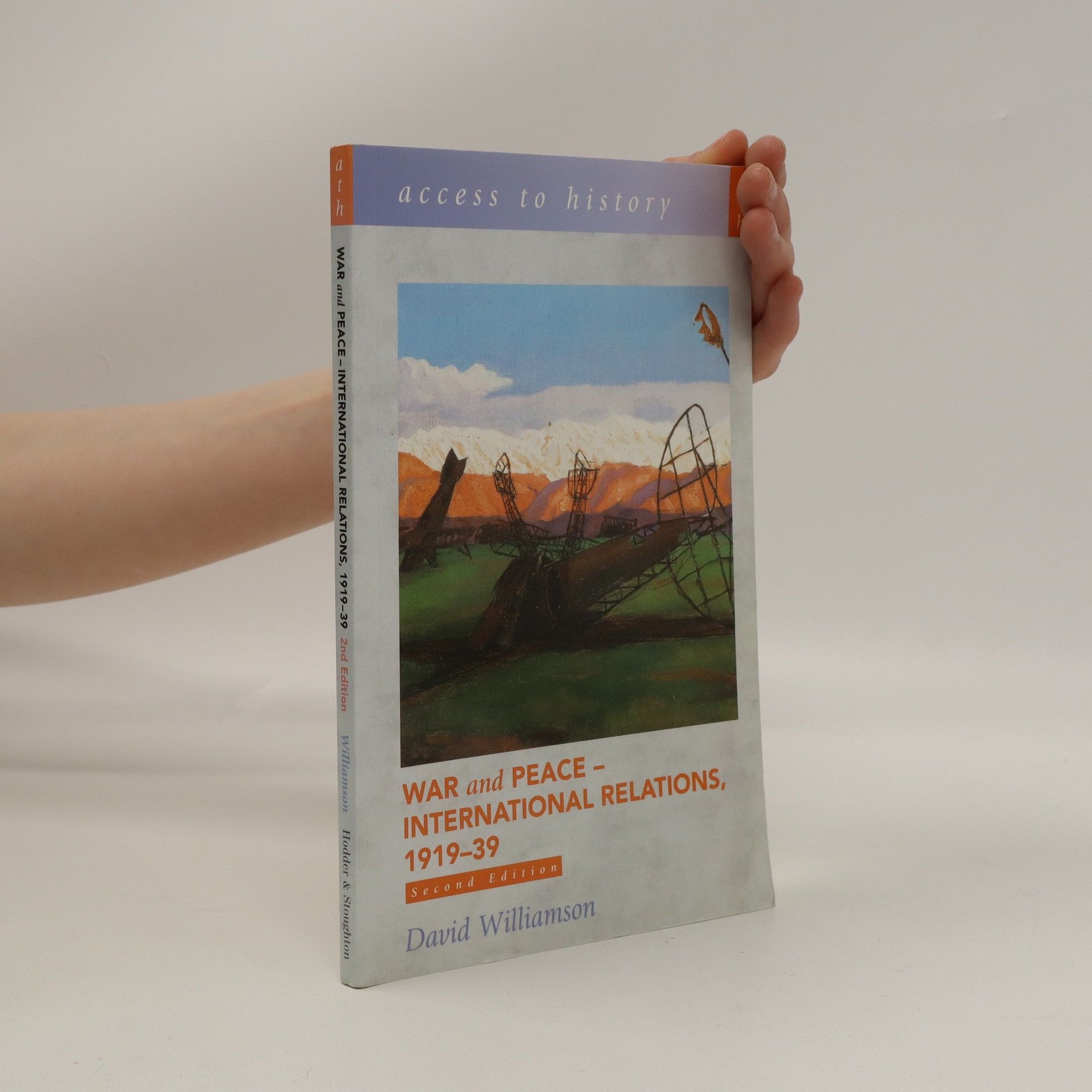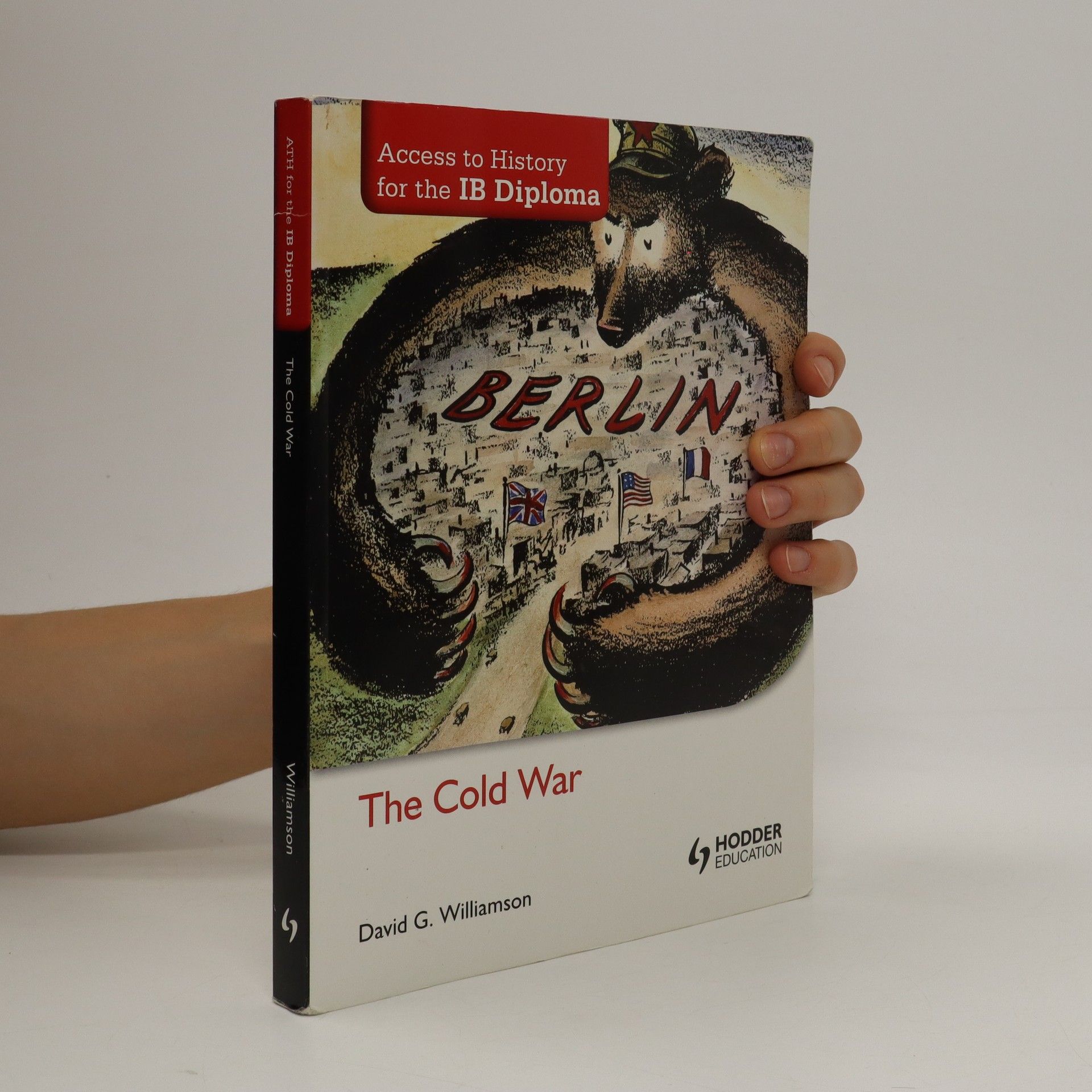Each title in this series supports a specific topic in the IB history guide through thorough content coverage and examination guidance, helping students develop a good knowledge and understanding of the required content alongside the skills they need to do well.
David G. Williamson Livres
David Williamson est un dramaturge australien célébré dont les œuvres explorent souvent les dynamiques sociales et politiques de la société australienne. Ses pièces, réputées pour leurs dialogues percutants et leurs personnages incisifs, abordent les thèmes de l'identité, de la classe et des conflits culturels. Le style distinctif de Williamson capture l'essence de la vie australienne tout en touchant à des expériences humaines universelles. Ses contributions significatives au théâtre et au cinéma l'ont consacré comme un conteur de premier plan de sa génération.






Debrett’s Kings and Queens of Britain provides a complete and personal survey of the monarchs of England, from the early Celtic and Saxon Kings to the House of Windsor. Additional charts and notes include the kings of Scotland, Wales and Ireland.Starting with Celtic Britain before the Roman invasion – Cassivelaunus, Tascioranus, Cartimandua, Boudicca etc. – the book takes us through the ‘Celtic Twilight’ which preceded the establishment of the Anglo-Saxon Kingdoms and the coming of Christianity to the unification of England culminating in the first English coronation at Bath in 973.The Norman invasion heralded the great age of the Plantagenets and the House of Anjou from Henry II to the fall of Richard III at Bosworth field, and the start of the Tudor reigns. With the accession of James VI of Scotland and I of England the book covers the British monarchs through the Stuarts and Hanoverians to our present Royal family, and contains throughout concise and authoritative factual information. It is enlivened by many personal anecdotes about the lives of these most fascinating and historically influential people.Lavishly produced and illustrated in colour and monochrome with clear genealogical tables, this is a book which will add a new dimension to the study of the monarchy in the British Isles.
Europe and the Cold War, 1945-91
- 197pages
- 7 heures de lecture
This study analyses how the Cold War shaped post-World War 2 Europe through the division of Germany and the creation of two great military and economic blocks.
War and peace : international relations, 1919-39
- 144pages
- 6 heures de lecture
This new edition of focuses on the key issues of the period between the First and Second World Wars. Incorporating up-to-date historical interpretations, the author addresses questions such as, 'Why were there no major conflicts in the 1920s?', 'Why did the League of Nations fail?' and 'What were the key factors that led to the outbreak of war in 1939?'. Particular attention is given to the impact of the treaties that were agreed at the end of the First World War and the intense diplomatic negotiations that preceded the start of the Second World War. The study guides have been revised in line with the requirements of AS and A2, and provide a firm basis for answering source-based, extended-writing and essay questions
Full-length study of the opening campaign of the Second World War. Dispels misunderstandings and myths associated with the campaign.
This candid memoir by Australia's legendary playwright and screenwriter delves into the life of David Williamson, known for iconic works like The Removalists and Don's Party. Spanning five decades, Williamson reflects on his journey from a childhood marked by marital discord to becoming Australia's most successful playwright. He shares how his experiences shaped his fascination with drama's power to explore emotional conflict, the anxiety of crafting plays, and the joy of audience connection, alongside the sting of criticism. Williamson's narrative is filled with encounters with a diverse array of personalities—actors, directors, and politicians—ranging from Jacki Weaver and Chris Haywood to Nicole Kidman and Paul Keating. He recounts memorable moments, including overseas travels with notable figures and the pride of seeing his sons perform in his plays. The memoir is praised for its sharp wit, brutal honesty, and keen observations of Australian culture. Critics highlight Williamson's ability to weave a captivating narrative that reflects both personal and collective experiences. The book offers a rich tapestry of middle-class Australian life, cultural shifts in theatre, and the complexities of love, fame, and family, making it a compelling read for anyone interested in the intersection of personal and cultural history.
Through Disassembled Houses of Perfect Stones
- 136pages
- 5 heures de lecture
The weight of history lies on the spine of memory. That heft and delicate balance are palpable in these rich poems that echo with grief, longing, and observed beauty. From the silence and complexity of the northern wilderness to the vast prairie landscapes stretching across the province, Through Disassembled Houses of Perfect Stones explores self, ancestry, and community through poems which dwell on the page with a satisfying density of imagery. Combining careful observation with sensitive reflection, this work examines the poet's memory and experience as a father, son, husband, and descendent of European settlers married into an Indigenous family living in Northern Manitoba.
Years of Division
- 480pages
- 17 heures de lecture
This title charts the history of Europe since 1945 and includes coverage of political, social and economic themes through a country-by-country approach. It also features chapters on the Cold War, the Common European Market, NATO and the Warsaw Pact, and assesses the development of culture since 1945. Historiography is woven into the narrative and all of the chapters are supported by bibliographies, advice sections and source material. The exercise sections comprise structured, essay and source-based activities, reflecting examination syllabuses.
Water Treatment and Sanitation
A Handbook Of Simple Methods For Rural Areas In Developing Countries
A handbook of simple methods for rural areas in developing countries. This corrected and revised impression includes an appendix on planning in developing towns.
Starting with Celtic Britain before the Roman invasion, David Williamson takes us through the establishment of the Anglo-Saxon kingdoms, the coming of Christianity and unification of England, to the Norman Conquest in 1066. The subsequent dynastic struggles of Angevins and Plantagenets heralded the great age of English kingship, under the Tudors and Stuarts - a period as compelling as any in the country's history - before the Hanoverians ushered in the modern age and the royalty of today.The author draws on his deep knowledge of history to paint a vivid and sensitive portrait of each monarch, dealing afresh with the controversies that surround them. His text is enlivened with anecdotes and complemented by a rich selection of images, largely chosen from the wealth of the National Portrait Gallery's collections, and by clear family trees.


